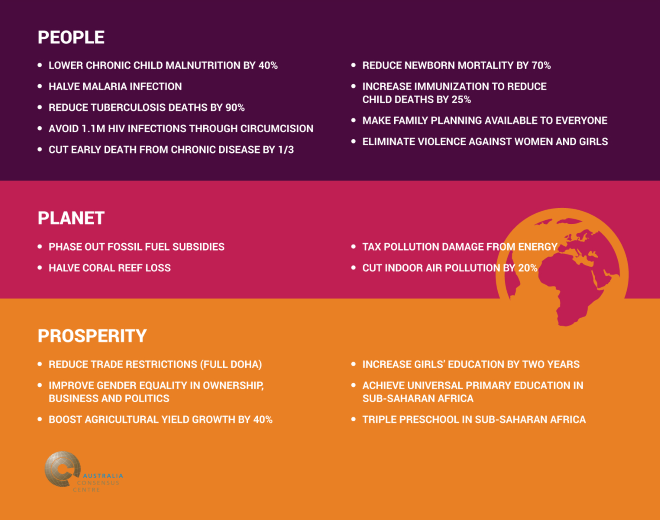Getting the word out
Published by
Over the past 18 months, the Post-2015 Consensus brought together renowned experts from the United Nations (UN), non-governmental (NGO) and private sectors with 60 teams of economists to produce 100+ research papers to establish the most effective targets for the post-2015 development agenda within 22 core issue areas.
An Expert Panel including two Nobel Laureates has reviewed this research and identified 19 targets that represent the best value-for-money in development over the period 2016 to 2030. Reaching these global targets by 2030 will do more than $15 of good for every aid dollar spent. The problem is that right now, most interest groups understandably battle to include their favorite targets, but having more than a thousand potential targets leaves the world with no priorities.
There is still much awareness building work to be done in order to ensure the UN decides an ambitious albeit concise list of targets for the world.
That is why the Copenhagen Consensus Center has launched a series of country-specific seminars in Bangladesh, Brazil, Colombia, Germany, India, Indonesia, Kenya, Mexico, Nigeria and South Africa. Each seminar will bring together international economists, local sector experts and top local journalists, to delve deeper into the potential benefits which the post-2015 development agenda could bring to the specific country.
In addition to these country-specific seminars, the Centers have begun briefing aid agencies and policy advisers around the world in key locations such as Australia, Canada, the European Union, France, Germany, Japan, Netherlands, Norway, Sweden, the United Kingdom and the United States.
However, we know building awareness among experts, aid agencies and key stake holders is not enough. The Centers want to engage some of the people that will be affected the most by the potential post-2015 development goals – young people in developing countries around the world. That is why we have begun holding Post-2015 Youth Forums in countries around the world such as Ecuador, Ghana, India, Kenya, Mexico, Nigeria, Peru, Rwanda, Tanzania, Uganda and Zambia.


